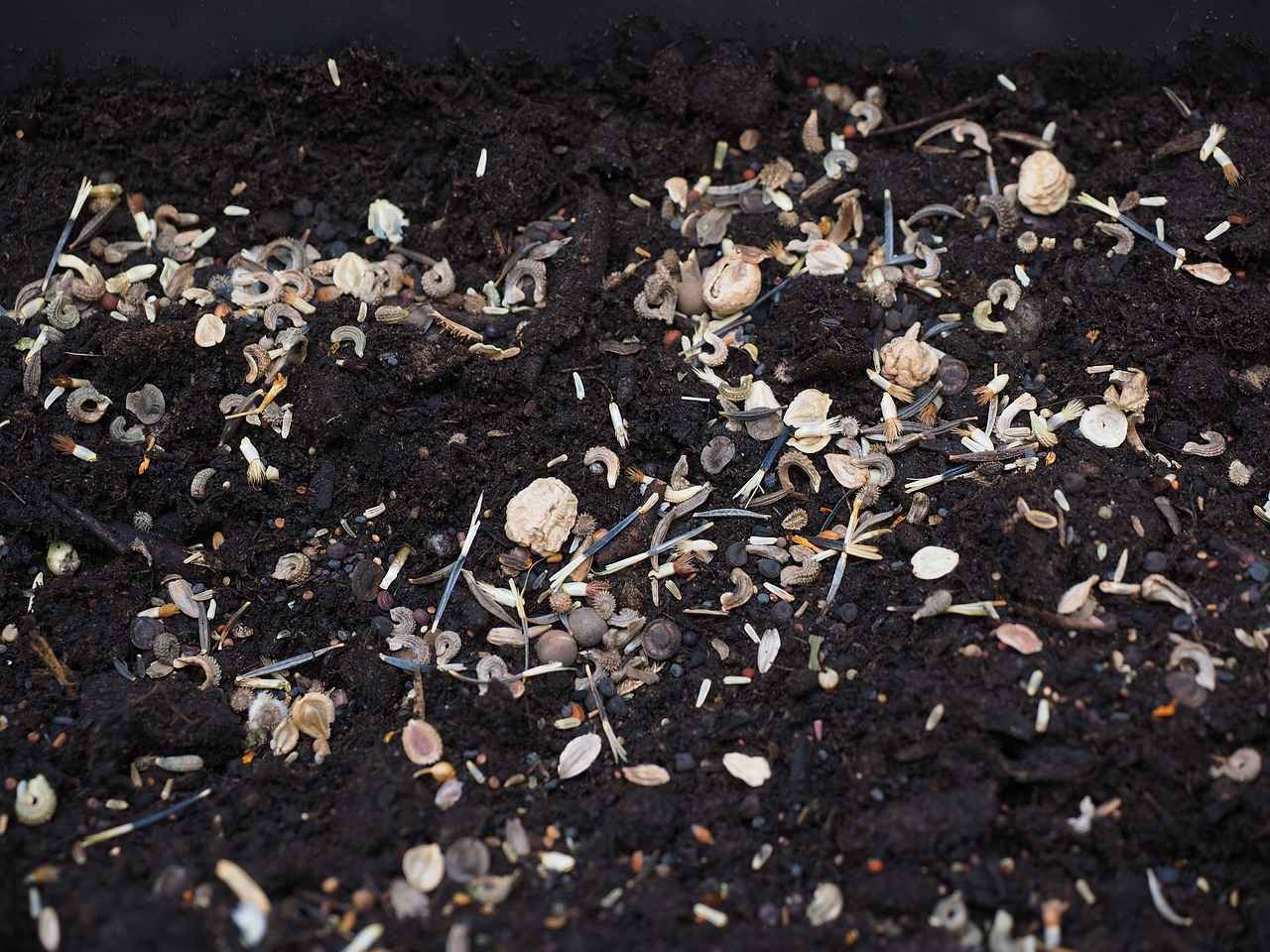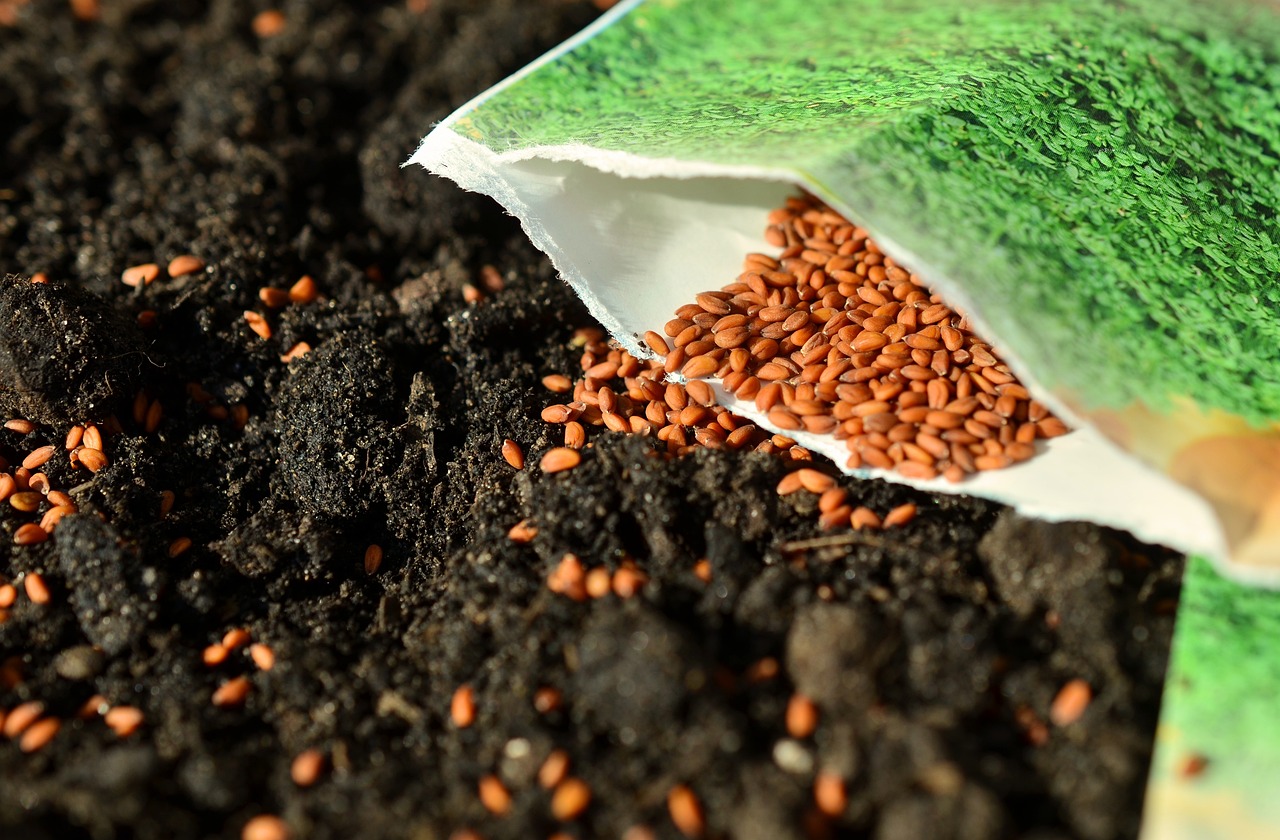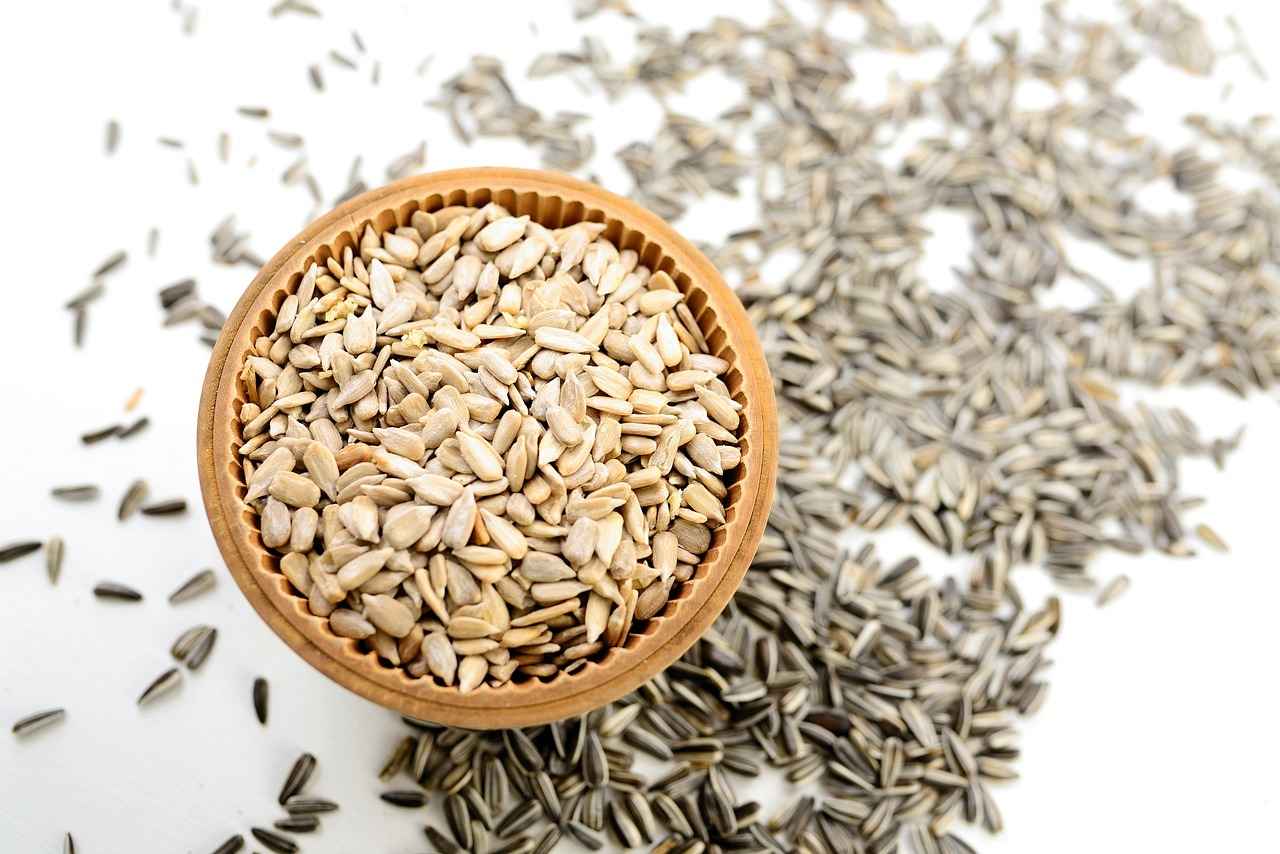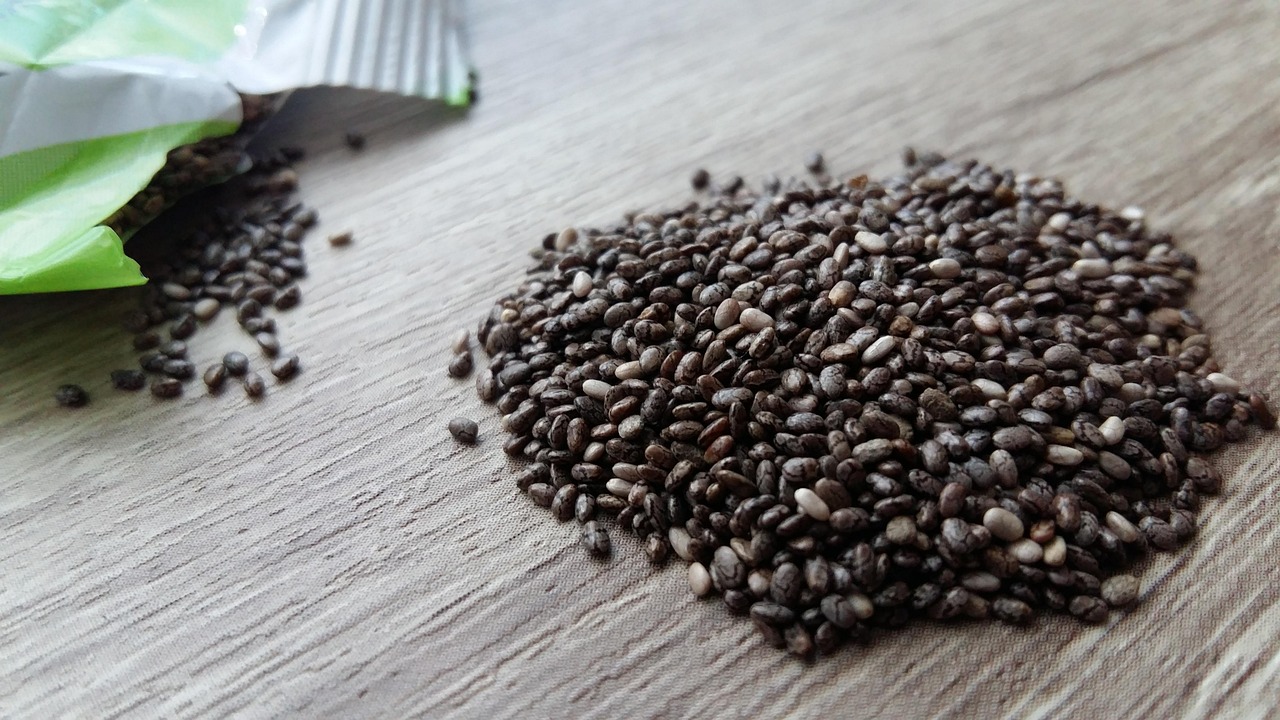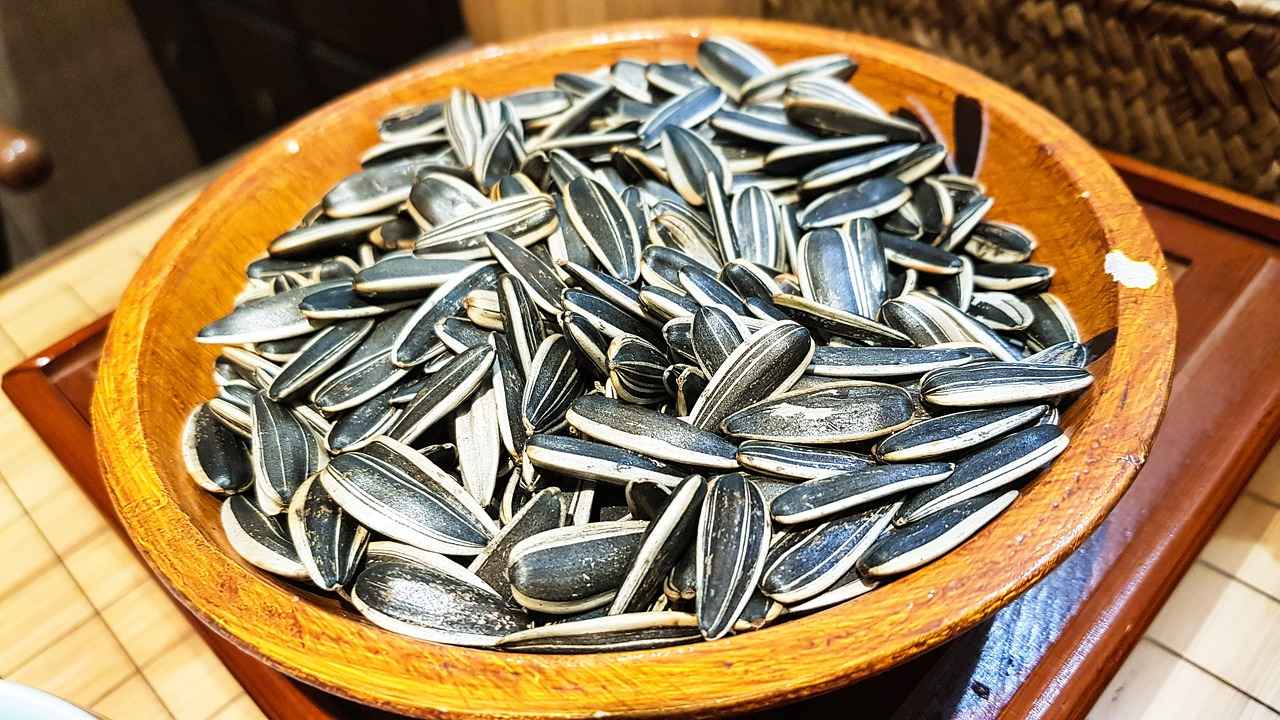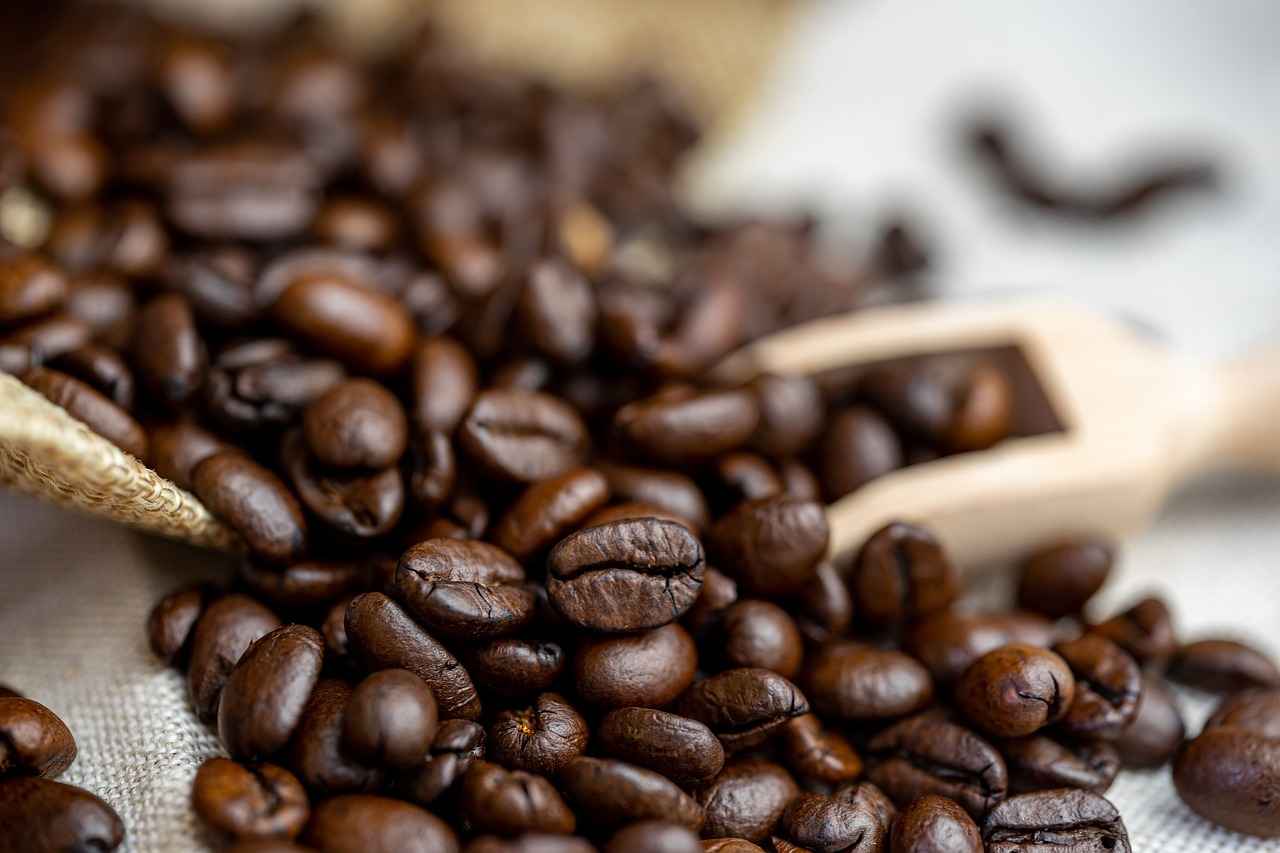Flax seeds and chia seeds have become staples in the health and wellness community, praised for their rich nutrient profiles and health benefits. This article delves into the nutritional advantages, culinary applications, and health impacts of these two superfoods, helping you decide which might be the better fit for your dietary needs.
Flax seeds are small, flat seeds that can be brown or golden in color. They are renowned for their high content of omega-3 fatty acids, particularly alpha-linolenic acid (ALA), which is essential for heart health. Additionally, flax seeds are an excellent source of dietary fiber, lignans, and various vitamins and minerals.
Chia seeds are tiny black or white seeds derived from the Salvia hispanica plant. They are celebrated for their impressive fiber and protein content, as well as their ability to absorb water and form a gel-like substance. This unique property makes them a favorite in various recipes, from smoothies to puddings.
- Cardiovascular Health: The omega-3s in flax seeds can significantly lower blood pressure and improve cholesterol levels, which are crucial for reducing heart disease risk.
- Digestive Health: Flax seeds are rich in fiber, promoting regular bowel movements and enhancing gut health.
- Anti-Inflammatory Properties: The lignans in flax seeds may help reduce inflammation in the body.
- Weight Management: Chia seeds expand in the stomach, creating a feeling of fullness and potentially aiding in weight loss.
- Bone Health: High in calcium, phosphorus, and magnesium, chia seeds support strong bones and may help prevent osteoporosis.
- Antioxidant Properties: Rich in antioxidants, chia seeds help combat oxidative stress in the body.
When comparing flax seeds and chia seeds, it’s essential to look at their nutritional content:
| Nutrient | Flax Seeds (per 100g) | Chia Seeds (per 100g) |
|---|---|---|
| Omega-3 Fatty Acids | 22g | 17g |
| Fiber | 27g | 34g |
| Protein | 18g | 17g |
Incorporating flax seeds into your meals can be both easy and delicious:
- Flaxseed Oil: Use it in salad dressings for a healthy fat boost.
- Baking: Add ground flax seeds to muffins, pancakes, or bread for added nutrition.
- Smoothies: Blend whole or ground flax seeds into your smoothies for a nutrient-rich drink.
Chia seeds can be added to your diet in various ways:
- Chia Seed Pudding: Mix chia seeds with milk or plant-based milk and let them sit overnight for a nutritious breakfast.
- In Smoothies: Add chia seeds to smoothies for a fiber and protein boost.
- Baking: Incorporate chia seeds into baked goods for added texture and nutrition.
While flax seeds are generally safe, some individuals may experience digestive issues, particularly if consumed in large amounts. It’s important to introduce them gradually into your diet.
Chia seeds are also safe for most people, but they can cause digestive issues if not consumed with enough water. Monitor your intake to avoid any adverse effects.

What Are Flax Seeds?
Flax seeds, scientifically known as Linum usitatissimum, are small, nutrient-dense seeds that come in two primary varieties: brown and golden. These seeds have been used for thousands of years in various cultures for their health benefits and culinary versatility. They are particularly celebrated for their high content of omega-3 fatty acids, specifically alpha-linolenic acid (ALA), which plays a crucial role in heart health and inflammation reduction.
Rich in dietary fiber, flax seeds contribute significantly to digestive health. They are an excellent source of both soluble and insoluble fiber, helping to promote regular bowel movements and supporting a healthy gut microbiome. In addition to fiber, flax seeds are packed with essential nutrients such as protein, vitamins B1 and B6, magnesium, phosphorus, and antioxidants.
Flax seeds can be easily incorporated into your daily diet in various ways. Here are some popular methods:
- Smoothies: Adding a tablespoon of ground flax seeds to your smoothie can enhance its nutritional profile.
- Baking: Flax seeds can be used in breads, muffins, and cookies, providing a nutty flavor and added health benefits.
- As a Topping: Sprinkle flax seeds on salads, yogurt, or oatmeal for a crunchy texture and nutritional boost.
Flax seeds offer a myriad of health benefits that make them a valuable addition to any diet:
- Heart Health: The omega-3 fatty acids found in flax seeds can help lower blood pressure and improve cholesterol levels, reducing the risk of heart disease.
- Weight Management: High in fiber, flax seeds can promote a feeling of fullness, making them a helpful tool for those looking to manage their weight.
- Anti-Inflammatory Properties: The omega-3s and lignans in flax seeds have anti-inflammatory effects, which may benefit conditions like arthritis.
- Cancer Prevention: Some studies suggest that the lignans in flax seeds may have protective effects against certain types of cancer, particularly breast and prostate cancer.
While flax seeds are generally safe for most people, there are some potential side effects to be aware of:
- Digestive Issues: Some individuals may experience bloating or gas, especially if they are not accustomed to high-fiber foods. It is advisable to introduce flax seeds gradually.
- Medication Interactions: Flax seeds can interact with certain medications, particularly blood thinners. Consulting with a healthcare provider before making significant dietary changes is recommended.
When purchasing flax seeds, opt for whole seeds or ground flax seeds, depending on your preference. Ground flax seeds are easier for the body to digest, but whole seeds have a longer shelf life. Store flax seeds in a cool, dark place, preferably in an airtight container to maintain their freshness and prevent rancidity.
In summary, flax seeds are a powerhouse of nutrients that offer numerous health benefits. Their versatility in cooking and baking makes them an easy addition to any diet, contributing to overall wellness and health.

What Are Chia Seeds?
Chia seeds have become a staple in health-conscious diets, celebrated for their impressive nutritional profile and versatility. These small seeds, which can be black or white, are derived from the Salvia hispanica plant, native to Central America. They are not only rich in essential nutrients but also offer various health benefits that make them a popular choice among nutrition enthusiasts.
Chia seeds are packed with fiber, protein, and omega-3 fatty acids, making them an excellent addition to any diet. Just a 28-gram serving (about two tablespoons) contains:
- 11 grams of fiber – crucial for digestive health.
- 4 grams of protein – essential for muscle repair and growth.
- 5 grams of omega-3 fatty acids – beneficial for heart health.
- High levels of antioxidants – which combat oxidative stress.
The high fiber content in chia seeds plays a significant role in promoting digestive health. When mixed with liquid, chia seeds can absorb up to 12 times their weight, forming a gel-like substance. This characteristic helps:
- Regulate bowel movements.
- Prevent constipation.
- Support gut health by acting as a prebiotic, feeding beneficial gut bacteria.
Many people turn to chia seeds for weight management. The soluble fiber in these seeds expands in the stomach, creating a feeling of fullness that can help reduce overall calorie intake. This satiety effect is particularly beneficial for those looking to control their appetite and manage their weight effectively.
Chia seeds are also a great source of essential minerals that promote bone health. They are rich in calcium, phosphorus, and magnesium, which are vital for maintaining strong bones. This makes them especially beneficial for individuals at risk of osteoporosis, particularly postmenopausal women.
Adding chia seeds to your diet is simple and can enhance the nutritional value of various meals. Here are some practical ways to incorporate them:
- Chia Seed Pudding: Mix chia seeds with your choice of milk (dairy or plant-based), sweeten with honey or maple syrup, and let it sit overnight for a delicious breakfast or dessert.
- Smoothies: Blend chia seeds into your favorite smoothies for added texture and nutrition.
- Baking: Incorporate chia seeds into baked goods like muffins, bread, or pancakes.
While chia seeds are generally safe for most people, there are some potential side effects to consider. Due to their high fiber content, consuming large amounts without adequate hydration can lead to digestive issues, such as bloating or gas. It’s important to start with a small amount and gradually increase your intake while ensuring you drink plenty of water.
Although rare, some individuals may experience allergic reactions to chia seeds. If you have a history of allergies to other seeds or plants, it is advisable to monitor your reaction when trying chia seeds for the first time. Additionally, those on blood-thinning medications should consult a healthcare provider before adding chia seeds to their diet, as they may affect blood clotting.
In conclusion, chia seeds offer a wealth of nutritional benefits, making them a valuable addition to your diet. Whether you’re looking to improve your digestive health, manage your weight, or enhance your bone strength, these tiny seeds can play a significant role in achieving your health goals.
Health Benefits of Flax Seeds
Flax seeds, often hailed as a superfood, are tiny powerhouses of nutrition that can significantly enhance your overall health. These seeds, derived from the flax plant, are rich in essential nutrients and have been linked to a variety of health benefits. In this section, we will explore the diverse health benefits of flax seeds, emphasizing their potential to improve heart health, support digestion, and even offer protective properties against certain types of cancer.
Flax seeds are packed with a variety of nutrients, including:
- Omega-3 Fatty Acids: Flax seeds are one of the richest plant sources of omega-3 fatty acids, particularly alpha-linolenic acid (ALA), which is crucial for heart health.
- Lignans: These plant compounds have antioxidant properties and may play a role in cancer prevention.
- Fiber: Flax seeds are an excellent source of both soluble and insoluble fiber, which aids in digestion.
The omega-3 fatty acids found in flax seeds are known for their ability to lower cholesterol levels and reduce inflammation, both of which are vital for maintaining a healthy heart. Studies have shown that regular consumption of flax seeds can lead to:
- Lower Blood Pressure: The anti-inflammatory properties of ALA may help reduce blood pressure levels.
- Improved Cholesterol Levels: Flax seeds can help lower LDL (bad) cholesterol and increase HDL (good) cholesterol, contributing to overall cardiovascular health.
Incorporating flax seeds into your diet can significantly enhance digestive health. The high fiber content in flax seeds promotes regular bowel movements and helps prevent constipation. Additionally:
- Gut Health: The soluble fiber in flax seeds acts as a prebiotic, supporting the growth of beneficial gut bacteria.
- Weight Management: The fiber also helps you feel fuller for longer, which can aid in weight loss efforts.
Flax seeds contain lignans, which are phytoestrogens that may help protect against hormone-related cancers, such as breast and prostate cancer. Research indicates that:
- Antioxidant Properties: Lignans possess strong antioxidant properties that can help reduce oxidative stress in the body.
- Hormonal Balance: By modulating estrogen levels, flax seeds may help lower the risk of hormone-related cancers.
Adding flax seeds to your daily meals is simple and versatile. Here are some practical ways to include them:
- Smoothies: Blend a tablespoon of ground flax seeds into your morning smoothie for a nutritious boost.
- Baking: Incorporate flax seeds into baked goods like muffins and bread.
- Salads and Yogurt: Sprinkle flax seeds on salads or mix them into yogurt for added texture and nutrition.
In conclusion, flax seeds are a valuable addition to any diet, offering numerous health benefits that can enhance heart health, support digestion, and potentially reduce cancer risk. By incorporating these tiny seeds into your meals, you can enjoy their nutritional advantages and contribute to your overall well-being.
Cardiovascular Health
The significance of cannot be overstated in today’s fast-paced world. With heart disease being one of the leading causes of death globally, understanding how to improve heart health through diet is crucial. One dietary component that has garnered attention is flax seeds, which are rich in omega-3 fatty acids. This article delves into how flax seeds can contribute to better cardiovascular health.
Omega-3 fatty acids are essential fats that the body cannot produce on its own. They play a vital role in maintaining a healthy heart by:
- Lowering Blood Pressure: Regular consumption of omega-3 fatty acids found in flax seeds can help reduce blood pressure levels. This effect is particularly beneficial for individuals dealing with hypertension.
- Improving Cholesterol Levels: Flax seeds can help raise high-density lipoprotein (HDL) cholesterol, often referred to as “good” cholesterol, while lowering low-density lipoprotein (LDL) cholesterol, or “bad” cholesterol.
- Reducing Inflammation: Chronic inflammation is a significant risk factor for heart disease. The anti-inflammatory properties of omega-3s can help mitigate this risk.
Flax seeds are not just a source of omega-3s; they also contain other beneficial compounds:
- Lignans: These are phytoestrogens that may help reduce the risk of heart disease by improving blood vessel function and reducing cholesterol levels.
- Fiber: Flax seeds are an excellent source of dietary fiber, which aids in digestion and helps maintain a healthy weight—factors that are essential for heart health.
Incorporating flax seeds into your daily routine can be both simple and delicious:
- Smoothies: Add a tablespoon of ground flax seeds to your morning smoothie for a nutritious boost.
- Baking: Substitute part of the flour in your baking recipes with ground flax seeds to enhance nutritional value.
- Salads: Sprinkle whole or ground flax seeds on salads to add a crunchy texture and nutritional benefits.
While flax seeds are generally safe for most people, it’s important to consider potential side effects:
- Digestive Issues: Some individuals may experience bloating or gas when consuming flax seeds, particularly if they are not accustomed to high-fiber foods.
- Medication Interactions: Flax seeds can interact with blood thinners and other medications, so it’s advisable to consult a healthcare provider before making significant dietary changes.
In summary, flax seeds are a powerhouse of nutrients that can significantly contribute to cardiovascular health. Their high omega-3 fatty acid content, combined with other beneficial compounds, makes them an excellent choice for anyone looking to improve their heart health. By incorporating flax seeds into your diet, you can take a proactive step towards reducing the risk of heart disease and enhancing your overall well-being.
Digestive Health
When it comes to maintaining a healthy digestive system, fiber plays a crucial role. Among the various sources of dietary fiber, flax seeds stand out as a powerhouse for promoting digestive health. These tiny seeds are not only rich in fiber but also offer a range of other beneficial nutrients that contribute to overall well-being.
Flax seeds are an excellent source of both soluble and insoluble fiber. This dual fiber content is essential for promoting regular bowel movements and preventing constipation. The soluble fiber in flax seeds absorbs water, forming a gel-like substance that helps to soften stool and make it easier to pass. On the other hand, the insoluble fiber adds bulk to the stool, facilitating its movement through the digestive tract.
In addition to their fiber content, flax seeds contain lignans, which are plant compounds with antioxidant properties. These lignans may help to balance gut flora by promoting the growth of beneficial bacteria while inhibiting harmful ones. A healthy gut microbiome is vital for effective digestion and can also influence overall health, including immune function and mental well-being.
Consuming flax seeds regularly can significantly enhance digestive regularity. Studies have shown that individuals who incorporate flax seeds into their diets often experience improved bowel movement frequency and consistency. This can lead to a reduction in digestive discomfort and a lower risk of developing conditions such as irritable bowel syndrome (IBS) and diverticulitis.
- Smoothies: Blend flax seeds into your morning smoothie for an easy fiber boost.
- Baking: Add ground flax seeds to your baked goods, such as bread or muffins, to enhance their nutritional profile.
- Salads: Sprinkle whole or ground flax seeds on salads for added crunch and nutrition.
- Oatmeal: Mix flax seeds into your oatmeal for a filling and nutritious breakfast.
While flax seeds are generally safe for most people, it’s essential to consume them in moderation. Overconsumption can lead to digestive issues such as bloating or gas, especially in individuals who are not accustomed to high-fiber diets. Gradually introducing flax seeds into your meals can help mitigate these side effects.
If you are considering adding flax seeds to your diet, especially if you have existing digestive issues or are taking medications, it’s wise to consult with a healthcare provider. They can provide personalized advice and ensure that flax seeds are a suitable addition to your dietary regimen.
In summary, flax seeds are a valuable addition to any diet, particularly for those looking to enhance their digestive health. Their rich fiber content, along with beneficial compounds like lignans, makes them an excellent choice for promoting gut health and regularity.
Health Benefits of Chia Seeds
Chia seeds have rapidly gained popularity in the health food community, and for good reason. These tiny seeds are not only versatile but also packed with essential nutrients that can significantly benefit your overall health. In this section, we will explore the remarkable , focusing on their antioxidant properties and their role in weight management.
Chia seeds are derived from the Salvia hispanica plant, which is native to Central America. They are rich in antioxidants, which help combat oxidative stress in the body. Oxidative stress occurs when there is an imbalance between free radicals and antioxidants, leading to cellular damage. By incorporating chia seeds into your diet, you can enhance your body’s ability to fight these harmful free radicals.
One of the standout features of chia seeds is their impressive antioxidant content. Antioxidants are vital for protecting your cells from damage caused by free radicals, which can lead to chronic diseases such as heart disease, diabetes, and cancer. By consuming chia seeds, you can help reduce the risk of these conditions and promote overall health.
Chia seeds are also renowned for their ability to support weight management. They are high in fiber, which plays a crucial role in promoting satiety. When you consume chia seeds, they absorb water and expand in your stomach, creating a feeling of fullness that can help curb your appetite. This can be particularly beneficial for individuals looking to lose or maintain weight.
The soluble fiber in chia seeds not only helps with weight management but also supports digestive health. By promoting regular bowel movements and preventing constipation, chia seeds contribute to a healthy gut. Including these seeds in your diet can enhance your digestive system’s efficiency, leading to improved nutrient absorption and overall well-being.
Chia seeds are a powerhouse of essential nutrients, including calcium, phosphorus, and magnesium, which are crucial for maintaining strong bones. This makes them particularly beneficial for individuals at risk of osteoporosis, especially postmenopausal women. By incorporating chia seeds into your meals, you can support your bone health effectively.
- Chia Seed Pudding: Mix chia seeds with your favorite milk (dairy or plant-based) and let them soak overnight for a delicious breakfast or snack.
- Smoothies: Add a tablespoon of chia seeds to your smoothies for an extra nutritional boost.
- Baked Goods: Incorporate chia seeds into muffins, breads, or energy bars for added texture and health benefits.
While chia seeds are generally safe for most individuals, it is important to consume them in moderation. Due to their high fiber content, they can absorb a significant amount of water. If not consumed with adequate hydration, they may lead to digestive issues such as bloating or discomfort. Always start with small amounts and gradually increase your intake to allow your body to adjust.
In summary, chia seeds are a nutritional powerhouse that offers numerous health benefits, including high antioxidant content and support for weight management. Their versatility makes them easy to incorporate into various meals, enhancing both flavor and nutrition. By understanding how chia seeds can positively impact your health, you can make informed dietary choices that support your overall well-being.
Weight Management
When it comes to , many individuals are on the lookout for effective dietary solutions that can help them achieve their goals. One such solution that has gained significant attention is the inclusion of chia seeds in daily meals. These tiny seeds are not just a trendy health food; they possess remarkable properties that can assist in controlling appetite and promoting a sense of fullness.
The secret behind chia seeds lies in their high content of soluble fiber. When consumed, this fiber absorbs water and expands in the stomach, creating a gel-like substance. This process not only helps to slow down digestion but also contributes to a prolonged feeling of satiety. As a result, individuals may find themselves eating less and feeling satisfied for longer periods, which can be a crucial factor in weight loss efforts.
Chia seeds are unique in their ability to hold up to 12 times their weight in water. This characteristic is particularly beneficial for those looking to manage their weight. By incorporating chia seeds into meals, such as smoothies, yogurts, or puddings, one can significantly increase the volume of food consumed without adding excessive calories. This can lead to better portion control and reduced overall caloric intake.
- Chia Seed Pudding: A popular method to enjoy chia seeds is by making a pudding. Simply mix chia seeds with your choice of milk and let it sit overnight. The next morning, you’ll have a delicious and filling breakfast option.
- Smoothies: Adding a tablespoon of chia seeds to your smoothies can enhance their nutritional profile while keeping you full for longer.
- Baked Goods: Incorporating chia seeds into muffins or bread can add texture and nutrients, making your baked goods more satisfying.
While chia seeds are generally safe for most individuals, there are a few considerations to keep in mind. Due to their high fiber content, it’s essential to consume them with adequate water to prevent any digestive discomfort. Additionally, those with specific allergies should monitor their reactions when trying chia seeds for the first time.
Nutritionists often recommend chia seeds as part of a balanced diet. They not only contribute to weight management but also offer a wealth of nutrients, including omega-3 fatty acids, protein, and essential minerals. Incorporating them into a diet rich in whole foods, fruits, and vegetables can maximize their benefits.
In summary, chia seeds are a powerful ally in the journey towards effective weight management. Their ability to promote a feeling of fullness, combined with their versatility in various recipes, makes them an excellent addition to any diet. By understanding how to properly incorporate these seeds into your meals, you can harness their potential to support your health and weight loss goals.
Bone Health
is a critical aspect of overall well-being, especially as we age. With increasing life expectancy, maintaining strong bones has become a priority for many individuals, particularly postmenopausal women who face a heightened risk of osteoporosis. Among the various foods that contribute to bone health, chia seeds stand out due to their impressive nutrient profile.
Chia seeds are not just a trendy superfood; they are packed with essential nutrients that play a vital role in maintaining bone density and strength. These tiny seeds are rich in calcium, phosphorus, and magnesium, all of which are critical for bone formation and maintenance. Let’s explore how these nutrients contribute to bone health:
- Calcium: This mineral is the primary building block of bone tissue. Adequate calcium intake is crucial for preventing bone loss and maintaining bone density.
- Phosphorus: Working closely with calcium, phosphorus helps form and maintain bones and teeth. It also plays a role in energy production and storage.
- Magnesium: This mineral is essential for converting vitamin D into its active form, which helps the body absorb calcium effectively.
While dairy products are commonly known for their calcium content, chia seeds offer a plant-based alternative that is also suitable for those with lactose intolerance or following a vegan diet. A single ounce (about 28 grams) of chia seeds provides approximately 18% of the recommended daily intake of calcium. This makes them an excellent choice for anyone looking to boost their calcium intake naturally.
Incorporating chia seeds into your daily meals can be easy and delicious. Here are some practical ways to include them:
- Chia Seed Pudding: Mix chia seeds with your choice of milk or a milk alternative, add sweeteners or fruits, and let it sit overnight for a nutritious breakfast.
- Smoothies: Blend chia seeds into your smoothies for added texture and nutrition.
- Baking: Add chia seeds to muffins, breads, or granola bars for a nutrient boost.
For postmenopausal women, maintaining bone health is crucial due to the decrease in estrogen levels, which can lead to increased bone resorption and a higher risk of fractures. Studies suggest that diets rich in calcium and magnesium, such as those including chia seeds, can significantly help in reducing the risk of osteoporosis. The soluble fiber in chia seeds also aids in weight management, which is another factor that can influence bone health.
In summary, chia seeds are a powerhouse of nutrients that are essential for maintaining strong bones and preventing osteoporosis. Their high content of calcium, phosphorus, and magnesium makes them an excellent addition to a balanced diet, particularly for those at higher risk of bone density loss. By incorporating chia seeds into your meals, you can support your bone health and overall wellness effectively.

Comparative Nutritional Profiles
When it comes to making informed dietary choices, understanding the nutritional profiles of various foods is essential. This is especially true for flax seeds and chia seeds, both of which have gained popularity for their health benefits. In this section, we will delve into the comparative nutritional profiles of these two superfoods, helping you decide which one aligns best with your dietary goals.
Flax seeds are tiny powerhouses of nutrition. A typical serving of flax seeds (about 28 grams) contains:
- Calories: Approximately 150
- Protein: 5 grams
- Fat: 12 grams (of which 9 grams are omega-3 fatty acids)
- Fiber: 8 grams
- Calcium: 26 mg
The high content of omega-3 fatty acids, particularly alpha-linolenic acid (ALA), makes flax seeds an excellent choice for heart health and reducing inflammation. The fiber in flax seeds also promotes digestive health.
Chia seeds, on the other hand, are also nutrient-dense. A typical serving (28 grams) provides:
- Calories: Approximately 140
- Protein: 4 grams
- Fat: 9 grams (with a good balance of omega-3 and omega-6 fatty acids)
- Fiber: 11 grams
- Calcium: 177 mg
Chia seeds are particularly noted for their high fiber content, which aids in weight management and promotes a feeling of fullness. They also contain a variety of antioxidants, which help combat oxidative stress in the body.
When comparing the two, several factors come into play:
- Omega-3 Fatty Acids: Flax seeds have a higher concentration of ALA, making them particularly beneficial for those focused on heart health.
- Fiber Content: Chia seeds lead in fiber content, which can be advantageous for digestive health and satiety.
- Calcium: Chia seeds provide more calcium, making them a better choice for those looking to strengthen their bones.
The choice between flax seeds and chia seeds can depend on your specific health goals. If you are looking to increase your omega-3 intake and improve heart health, flax seeds may be the better option. Conversely, if your focus is on enhancing fiber intake and promoting digestive health, chia seeds could be more beneficial.
Both seeds can be easily incorporated into your diet:
- Flax Seeds: Ground flax seeds can be added to smoothies, oatmeal, and baked goods for an extra nutritional boost.
- Chia Seeds: Chia seeds can be soaked in water to create a gel-like pudding, or added to smoothies and salads for added texture and nutrition.
Ultimately, both flax seeds and chia seeds offer unique nutritional benefits, and incorporating a variety of seeds into your diet can help you achieve a balanced nutrient intake.
Omega-3 Fatty Acids Comparison
When it comes to omega-3 fatty acids, both flax seeds and chia seeds stand out as remarkable sources. However, a closer examination reveals that flax seeds hold a significant advantage in terms of concentration and health benefits. This article delves into the details of these two superfoods, highlighting their omega-3 content and the implications for heart health and inflammation reduction.
Omega-3 fatty acids are essential fats that our bodies cannot produce on their own. They play a crucial role in various bodily functions, including:
- Heart Health: Omega-3s have been shown to lower blood pressure, reduce triglycerides, and decrease the risk of heart disease.
- Inflammation Reduction: These fatty acids help combat inflammation, which is linked to numerous chronic diseases.
- Cognitive Function: Omega-3s are vital for brain health, potentially aiding in memory and cognitive performance.
Flax seeds are particularly rich in alpha-linolenic acid (ALA), a type of omega-3 fatty acid. In fact, they contain about 6,000 mg of ALA per tablespoon, making them one of the highest plant-based sources available. This high concentration provides numerous health benefits:
- Heart Health: The omega-3 content in flax seeds can help lower cholesterol levels and improve arterial function, significantly reducing the risk of cardiovascular diseases.
- Anti-Inflammatory Properties: Regular consumption of flax seeds may help alleviate inflammation, making them beneficial for individuals with inflammatory conditions such as arthritis.
- Hormonal Balance: The lignans found in flax seeds also contribute to hormonal balance, which can support overall health.
While chia seeds also provide omega-3 fatty acids, their ALA content is lower than that of flax seeds, offering about 5,000 mg per tablespoon. Despite this, chia seeds are still a nutritious addition to any diet:
- Weight Management: The high fiber content in chia seeds helps promote satiety, which can aid in weight loss efforts.
- Bone Health: With a good amount of calcium, chia seeds support bone density and overall skeletal health.
To reap the maximum benefits from omega-3 fatty acids, consider incorporating both flax seeds and chia seeds into your diet. Here are some practical tips:
- Smoothies: Add a tablespoon of ground flax seeds or chia seeds to your morning smoothie for a nutritious boost.
- Baking: Substitute some flour in your baking recipes with ground flax seeds for added nutrition.
- Salads: Sprinkle chia seeds over salads for a crunchy texture and nutritional enhancement.
In summary, while both flax seeds and chia seeds are excellent sources of omega-3 fatty acids, flax seeds have a higher concentration, making them particularly beneficial for heart health and inflammation reduction. Including a variety of these seeds in your diet can help you achieve optimal health benefits.
Fiber Content Comparison
When it comes to enhancing your diet with nutritious seeds, fiber content plays a crucial role in health benefits. In this section, we will delve deeper into the between flax seeds and chia seeds, highlighting why chia seeds are often favored for their superior fiber profile.
Fiber is an essential component of a healthy diet, contributing to digestive health and providing a sense of fullness. It helps regulate blood sugar levels and supports heart health. There are two types of dietary fiber: soluble and insoluble. Both types are important, and incorporating a variety of fiber-rich foods into your diet can lead to numerous health benefits.
Chia seeds are renowned for their remarkable fiber content. Just a single ounce (about 28 grams) of chia seeds contains approximately 11 grams of fiber, making them an excellent choice for those looking to boost their fiber intake. The majority of this fiber is soluble, which means it absorbs water and forms a gel-like consistency in the stomach. This property not only aids in digestion but also promotes a feeling of fullness, making chia seeds a popular addition for individuals aiming for weight management.
Flax seeds, while also nutritious, contain less fiber compared to chia seeds. An ounce of flax seeds provides around 8 grams of fiber. Although this is still a significant amount, it is important to note that flax seeds are primarily composed of insoluble fiber, which helps to add bulk to stool and promote regular bowel movements. This makes flax seeds beneficial for digestive health, but they may not provide the same level of satiety as chia seeds.
The higher fiber content in chia seeds contributes to better digestive health. The soluble fiber in chia seeds slows down digestion, allowing for better nutrient absorption and a more gradual release of energy. This can help prevent spikes in blood sugar levels and keep hunger at bay for longer periods. On the other hand, while flax seeds also support digestive health, their lower fiber content may not be as effective in promoting satiety.
Given their high fiber content, chia seeds can be easily incorporated into various meals. Here are some popular ways to enjoy chia seeds:
- Chia Seed Pudding: Mix chia seeds with your favorite milk or yogurt, let it sit overnight, and enjoy a nutritious breakfast.
- Smoothies: Add a tablespoon of chia seeds to your morning smoothie for an extra fiber boost.
- Baked Goods: Incorporate chia seeds into muffins, breads, or pancakes for added texture and nutrition.
Flax seeds can also be a valuable addition to your diet, though they may not provide the same level of fiber as chia seeds. Here’s how to use them:
- Smoothies: Blend flax seeds into your smoothies for a nutty flavor and added omega-3 fatty acids.
- Sprinkling on Foods: Top salads, yogurt, or oatmeal with ground flax seeds for a nutritional boost.
- Baking: Use ground flax seeds as an egg substitute in vegan baking or to enhance the fiber content of baked goods.
Both chia seeds and flax seeds offer unique health benefits, but when it comes to fiber content, chia seeds take the lead. Their ability to provide a significant amount of soluble fiber makes them an excellent choice for those looking to improve digestion and promote satiety. By incorporating a variety of these seeds into your diet, you can enjoy the diverse nutritional benefits they offer.

How to Incorporate Flax Seeds into Your Diet
Incorporating flax seeds into your diet can be both simple and delicious, opening up a world of culinary possibilities. These tiny seeds are not only nutritious but also versatile, making them an excellent addition to various meals. Here’s how you can easily include flax seeds in your daily routine.
Flax seeds are a powerhouse of nutrients, offering a rich source of omega-3 fatty acids, fiber, and lignans, which are known for their health benefits. But how can you incorporate them into your meals? Here are some practical ideas:
- Blend It In: Add a tablespoon of ground flax seeds to your morning smoothie. It pairs well with fruits like bananas, berries, and spinach, enhancing the nutritional content without altering the flavor.
- Nutty Flavor: Flax seeds can add a subtle nutty flavor to your smoothies, making them more satisfying.
Baking is another fantastic way to incorporate flax seeds into your diet. Here are some ideas:
- Flaxseed Bread: Substitute some of the flour in your bread recipes with ground flax seeds. This not only boosts the nutritional value but also adds moisture to the bread.
- Muffins and Pancakes: Add a tablespoon of flax seeds to muffin or pancake batter for an extra dose of fiber and omega-3s.
Flax seeds can be sprinkled on various dishes to enhance flavor and nutrition:
- Salads: A tablespoon of flax seeds can add a crunchy texture to salads, making them more enjoyable.
- Yogurt: Mix flax seeds into your yogurt for a nutritious breakfast or snack. Combine with fruits and honey for added sweetness.
Using flaxseed oil as a salad dressing is another delicious way to consume flax seeds:
- Flavorful Dressing: Combine flaxseed oil with vinegar, lemon juice, and your favorite herbs for a healthy dressing that’s rich in omega-3s.
For those who love snacks, consider making homemade energy bars:
- Nutritious Snacks: Combine oats, nuts, honey, and ground flax seeds to create energy bars. These are perfect for a quick, healthy snack on the go.
The recommended daily intake of flax seeds is about 1-2 tablespoons. However, it’s essential to start with a smaller amount if you are new to high-fiber foods to avoid digestive discomfort.
Incorporating flax seeds into your diet can be a delightful experience filled with various flavors and textures. Whether you choose to add them to smoothies, baked goods, or as toppings, the health benefits they offer are undeniable. With their versatility, you can easily find ways to enjoy flax seeds in your meals, making healthy eating both enjoyable and satisfying.
Flaxseed Oil vs. Whole Seeds
When it comes to incorporating flax into your diet, understanding the differences between flaxseed oil and whole seeds is crucial. Each form offers unique benefits and nutritional profiles that cater to different dietary needs.
Flaxseed oil is derived from pressing the seeds of the flax plant. This oil is a concentrated source of omega-3 fatty acids, particularly alpha-linolenic acid (ALA), which is known for its anti-inflammatory properties and heart health benefits. However, it is important to note that flaxseed oil lacks the fiber found in whole seeds.
Whole flax seeds are tiny, nutrient-rich seeds that offer a range of health benefits. They are an excellent source of dietary fiber, which aids in digestion and helps maintain a healthy gut. Whole seeds also contain lignans, which are compounds that may have antioxidant properties and contribute to heart health.
- Whole Seeds: If you are looking to increase your fiber intake, whole flax seeds are the better option. They provide both soluble and insoluble fiber, which can help regulate bowel movements and promote a feeling of fullness.
- Flaxseed Oil: On the other hand, if your primary goal is to boost your omega-3 fatty acid intake, flaxseed oil is the superior choice. It offers a higher concentration of omega-3s without the fiber.
| Nutritional Component | Whole Flax Seeds (per 100g) | Flaxseed Oil (per 100g) |
|---|---|---|
| Calories | 534 | 884 |
| Omega-3 Fatty Acids | 22g | 53g |
| Fiber | 27g | 0g |
| Protein | 18g | 0g |
Incorporating both forms of flax into your diet can be beneficial:
- Whole Flax Seeds: Add them to smoothies, oatmeal, or baked goods. You can also sprinkle them on salads or yogurt for an extra crunch.
- Flaxseed Oil: Use it as a salad dressing or drizzle it over cooked vegetables. However, avoid heating flaxseed oil, as high temperatures can degrade its beneficial properties.
While both flaxseed oil and whole seeds are generally safe for most people, they can cause side effects if consumed in excess. Some individuals may experience digestive discomfort, such as bloating or gas, especially when introducing high-fiber foods like whole seeds into their diet. It’s advisable to start with small amounts and increase gradually.
The choice between flaxseed oil and whole seeds ultimately depends on your individual health goals. If you are looking to enhance your omega-3 intake without the added fiber, flaxseed oil is a great option. However, if you want to improve your digestive health and increase your fiber consumption, whole flax seeds are the way to go. Consider your dietary needs and consult with a healthcare provider if you have any concerns.
Flaxseed Recipes
are an excellent way to incorporate this nutrient-dense superfood into your daily meals. Flax seeds, known for their high omega-3 fatty acid content, fiber, and lignans, offer a plethora of health benefits. From enhancing smoothies to enriching baked goods, the versatility of flax seeds makes them a fantastic addition to any diet.
One of the simplest ways to enjoy flax seeds is by adding them to your smoothies. Here’s how:
- Choose Your Base: Start with your favorite liquid base, such as almond milk, yogurt, or coconut water.
- Add Fruits and Vegetables: Include bananas, spinach, or berries for added nutrition and flavor.
- Include Flax Seeds: Add 1-2 tablespoons of ground flax seeds to the mix. Ground flax seeds are easier to digest than whole seeds, enhancing nutrient absorption.
- Blend and Enjoy: Blend until smooth for a delicious and healthy breakfast or snack.
Flax seeds can also be used in various baking recipes, providing a nutty flavor and added nutrition:
- Flaxseed Bread: Substitute part of the flour in your bread recipe with ground flax seeds. This not only boosts the fiber content but also adds a delightful texture.
- Flaxseed Muffins: Incorporate flax seeds into your muffin batter for a wholesome treat. They pair well with fruits like blueberries or bananas.
- Cookies: Add flax seeds to your cookie dough for a nutritious twist. They work particularly well in oatmeal or chocolate chip cookies.
Another easy way to include flax seeds in your diet is by using them as toppings:
- Salads: Sprinkle ground flax seeds over your salads for an extra crunch and nutritional boost.
- Yogurt: Mix flax seeds into your yogurt for a satisfying breakfast or snack. Pair it with fruits and nuts for a complete meal.
Flaxseed pudding is a delightful and nutritious dessert that is easy to prepare:
Ingredients:- 1/4 cup ground flax seeds- 1 cup almond milk (or any milk of choice)- 1 tablespoon sweetener (honey, maple syrup, or stevia)- 1/2 teaspoon vanilla extractInstructions:1. In a bowl, mix the ground flax seeds, almond milk, sweetener, and vanilla extract.2. Stir well and let it sit for about 10-15 minutes until it thickens.3. Enjoy it as is or top with fruits and nuts.
For a quick snack, consider making flaxseed energy bites:
Ingredients:- 1 cup rolled oats- 1/2 cup nut butter (peanut or almond)- 1/4 cup honey or maple syrup- 1/4 cup ground flax seeds- 1/4 cup chocolate chips (optional)Instructions:1. In a bowl, mix all ingredients until well combined.2. Form the mixture into small balls and place them on a baking sheet.3. Refrigerate for about 30 minutes before enjoying.
Incorporating flax seeds into your diet can be both delicious and nutritious. With these recipes, you can easily enhance your meals while reaping the numerous health benefits that flax seeds offer.
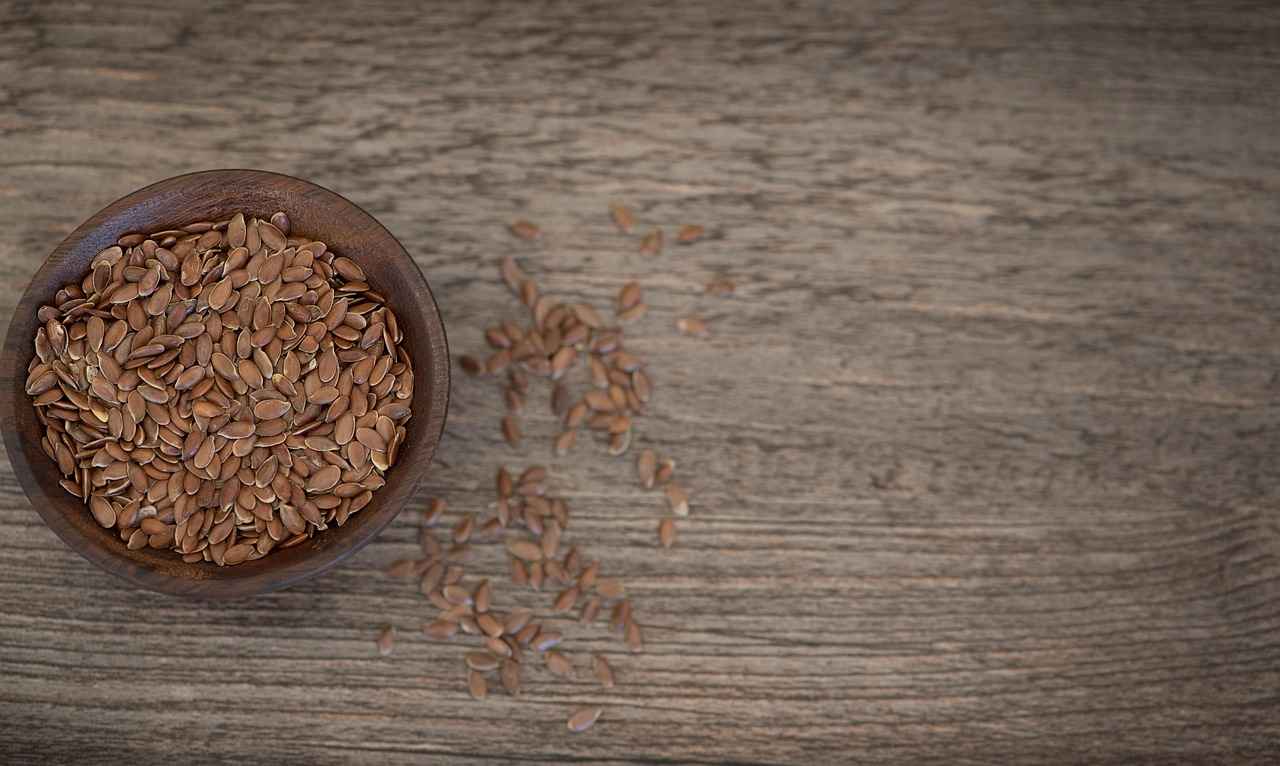
How to Incorporate Chia Seeds into Your Diet
Incorporating chia seeds into your diet can be a delightful and healthful experience. These tiny seeds are not only packed with essential nutrients but also offer a variety of ways to enhance your meals and snacks. Here, we will explore several methods to seamlessly integrate chia seeds into your daily routine, ensuring you reap their numerous health benefits.
Chia seeds are rich in omega-3 fatty acids, fiber, protein, and various micronutrients. This unique combination contributes to their reputation as a superfood. Their ability to absorb liquid and form a gel-like consistency makes them a versatile ingredient in many recipes.
- Chia Seed Pudding: One of the most popular ways to enjoy chia seeds is by making chia seed pudding. Mix chia seeds with your choice of milk or a dairy-free alternative, add a sweetener like honey or maple syrup, and let it sit in the refrigerator overnight. You can top it with fresh fruits, nuts, or granola for added flavor and texture.
- Smoothies: Adding a tablespoon of chia seeds to your morning smoothie can boost its nutritional value. They provide a satisfying thickness and can help keep you full longer.
- Baked Goods: Incorporate chia seeds into your baking by adding them to muffins, breads, or pancakes. They can replace eggs in vegan recipes when mixed with water, creating a gel that binds ingredients together.
- Salads and Dressings: Sprinkle chia seeds over salads for a crunchy texture. You can also blend them into salad dressings for an added health boost.
- Soups and Stews: Adding chia seeds to soups and stews can enhance their nutritional profile. They will thicken the consistency while providing essential nutrients.
When consuming chia seeds, it’s crucial to stay hydrated. These seeds can absorb up to 12 times their weight in water, which can lead to digestive discomfort if not consumed with adequate fluids. Always drink plenty of water when incorporating chia seeds into your diet to maximize their benefits and prevent any potential side effects.
Incorporating chia seeds into your diet can provide numerous health benefits:
- Weight Management: The high fiber content in chia seeds promotes a feeling of fullness, which can help control appetite and support weight loss efforts.
- Digestive Health: Chia seeds are an excellent source of soluble fiber, which aids digestion and helps maintain regular bowel movements.
- Bone Health: Rich in calcium, phosphorus, and magnesium, chia seeds contribute to strong bones, making them a great addition to the diets of those concerned about bone health.
- Heart Health: The omega-3 fatty acids found in chia seeds can help lower cholesterol levels and reduce the risk of heart disease.
Here are a couple of easy recipes to inspire you:
1. **Chia Seed Pudding**: - 1/4 cup chia seeds - 1 cup almond milk - 1 tablespoon honey - Mix all ingredients and let sit overnight in the fridge.2. **Chia Smoothie**: - 1 banana - 1 cup spinach - 1 tablespoon chia seeds - 1 cup almond milk - Blend until smooth and enjoy!
In conclusion, chia seeds are a versatile and nutritious addition to your diet. With various methods to incorporate them into your meals, you can enjoy their health benefits while enhancing the flavor and texture of your dishes. Start experimenting with these ideas today to make the most of this superfood!
Chia Seed Pudding
Chia seed pudding has become increasingly popular as a nutritious and versatile dish that can be enjoyed for breakfast, dessert, or a healthy snack. This delightful treat not only satisfies your sweet tooth but also provides a wealth of health benefits, making it a favorite among health enthusiasts.
Chia seed pudding is made by soaking chia seeds in liquid, typically milk or a dairy-free alternative, allowing them to absorb the liquid and expand. The result is a creamy, thick pudding that is both satisfying and nutritious. This dish is incredibly easy to prepare and can be customized with various flavors and toppings, making it a favorite among those who enjoy experimenting in the kitchen.
One of the main reasons for the popularity of chia seed pudding is its impressive nutritional profile. Chia seeds are loaded with fiber, protein, and omega-3 fatty acids, which contribute to a balanced diet. The high fiber content aids in digestion and promotes a feeling of fullness, making it an excellent choice for those looking to manage their weight.
- Rich in Nutrients: Chia seeds are a source of essential nutrients, including calcium, magnesium, and phosphorus, which are vital for bone health.
- Antioxidant Properties: Chia seeds contain antioxidants that help combat oxidative stress and inflammation in the body.
- Heart Health: The omega-3 fatty acids found in chia seeds support cardiovascular health by lowering cholesterol levels and reducing inflammation.
- Blood Sugar Control: The soluble fiber in chia seeds can help stabilize blood sugar levels, making chia seed pudding a great option for those with diabetes.
Preparing chia seed pudding is simple and requires just a few ingredients. Here’s a basic recipe to get you started:
Ingredients:- 1/4 cup chia seeds- 1 cup milk (dairy or non-dairy)- 1-2 tablespoons sweetener (honey, maple syrup, or agave)- 1/2 teaspoon vanilla extract (optional)Instructions:1. In a bowl or jar, combine chia seeds, milk, sweetener, and vanilla extract.2. Stir well to avoid clumping.3. Cover and refrigerate for at least 2 hours or overnight.4. Once thickened, stir again and add your favorite toppings like fruits, nuts, or granola.
The beauty of chia seed pudding lies in its versatility. You can customize it to suit your taste preferences and dietary needs. Here are some ideas:
- Flavor Variations: Add cocoa powder for a chocolate version, or mix in fruit purees for natural sweetness.
- Top It Off: Fresh fruits, nuts, seeds, or a drizzle of nut butter can enhance the flavor and nutritional value of your pudding.
- Layer It: Create a parfait by layering chia seed pudding with yogurt and fruits for an attractive presentation.
Chia seed pudding can be served in various ways. It can be enjoyed on its own, layered in a parfait, or used as a topping for oatmeal or yogurt. It also makes a great addition to smoothies, providing a nutrient boost without altering the flavor.
Chia seed pudding is not only a delicious and nutritious option but also an incredibly versatile dish that can be tailored to meet individual tastes and dietary requirements. With its numerous health benefits and ease of preparation, it is no wonder that chia seed pudding has become a staple in many households.
Chia in Smoothies and Baked Goods
Chia seeds have become a popular ingredient in many health-conscious kitchens, thanks to their impressive nutritional profile and versatility. Adding chia seeds to smoothies or baked goods not only enhances the nutritional value of your meals but also introduces a unique texture and flavor that can elevate your culinary creations.
Chia seeds are a powerhouse of nutrients. They are rich in omega-3 fatty acids, fiber, protein, and various essential minerals. Incorporating them into your diet can provide significant health benefits, including:
- Improved Digestive Health: The high fiber content in chia seeds aids in digestion and helps maintain regular bowel movements.
- Weight Management: Chia seeds expand in the stomach, promoting a feeling of fullness and potentially aiding in weight loss.
- Bone Strength: They are a good source of calcium, phosphorus, and magnesium, all of which are vital for maintaining strong bones.
One of the easiest and most delicious ways to incorporate chia seeds into your diet is by adding them to smoothies. Here are some tips:
- Blend Them In: Simply add a tablespoon of chia seeds to your smoothie ingredients before blending. They will absorb some of the liquid, thickening your smoothie and providing a satisfying texture.
- Soak Beforehand: Soaking chia seeds in water or your choice of milk for about 15 minutes before blending can create a gel-like consistency that enhances the creaminess of your smoothie.
- Flavor Pairing: Chia seeds have a mild flavor, making them a perfect addition to fruit-based smoothies. Try pairing them with bananas, berries, or spinach for a nutrient-packed drink.
Chia seeds can also be a fantastic addition to baked goods. Their unique properties make them a great substitute for eggs in vegan recipes. Here’s how to do it:
- Egg Substitute: Mix one tablespoon of chia seeds with three tablespoons of water and let it sit for about 15 minutes. This mixture can replace one egg in your baking recipes, adding moisture and nutrition.
- Enhancing Texture: Add chia seeds directly into muffins, breads, or pancakes for a delightful crunch and nutritional boost.
- Nutri-Boosting Toppings: Sprinkle chia seeds on top of breads or muffins before baking for an added layer of texture and a beautiful finish.
Another popular way to enjoy chia seeds is through chia seed pudding. This simple dish can be customized in numerous ways:
- Base Ingredients: Combine chia seeds with your choice of milk (almond, coconut, or dairy) and a sweetener like honey or maple syrup. Let it sit in the fridge overnight to thicken.
- Flavor Variations: Add vanilla extract, cocoa powder, or fruit purees to create different flavors.
- Top It Off: Enhance your pudding with toppings such as fresh fruits, nuts, or granola for added texture and flavor.
In summary, incorporating chia seeds into your smoothies and baked goods not only boosts their nutritional value but also enhances their flavor and texture. Whether you’re looking to improve your digestive health, manage your weight, or simply enjoy a delicious treat, chia seeds are a fantastic addition to your diet.

Potential Side Effects of Flax Seeds
Flax seeds are often celebrated for their numerous health benefits, but like any food, they come with potential side effects that should not be overlooked. Understanding these side effects is crucial for anyone considering adding flax seeds to their diet. Below, we delve into the various and provide insights on how to mitigate them.
- Digestive Issues: Many individuals may experience digestive discomfort when they first introduce flax seeds into their diet. This can include symptoms such as bloating, gas, and diarrhea. These issues are often due to the high fiber content in flax seeds, which can be challenging for some people to digest.
- Allergic Reactions: Although rare, some individuals may have an allergic reaction to flax seeds. Symptoms can range from mild skin irritations to more severe reactions. It is advisable to monitor your body’s response when trying flax seeds for the first time.
- Medication Interactions: Flax seeds may interact with certain medications, particularly blood thinners like warfarin. This is due to their high omega-3 fatty acid content, which can affect blood clotting. Always consult with a healthcare provider before adding flax seeds to your diet, especially if you are on medication.
To reduce the chances of experiencing digestive issues, it’s recommended to start with a small amount of flax seeds and gradually increase your intake. This allows your digestive system to adjust to the added fiber without overwhelming it.
Additionally, it is crucial to consume flax seeds with plenty of water. Flax seeds absorb liquid, which can lead to constipation if not adequately hydrated. A general guideline is to drink at least 8 ounces of water for every tablespoon of flax seeds consumed.
The long-term consumption of flax seeds is generally considered safe for most individuals. However, due to their high lignan content, excessive intake could potentially lead to hormonal imbalances, particularly in individuals with hormone-sensitive conditions. Moderation is key, and it is essential to maintain a balanced diet.
Individuals with specific medical conditions should exercise caution when consuming flax seeds. Those with a history of hormonal disorders, gastrointestinal issues, or allergies should consult a healthcare professional before including flax seeds in their diet. Pregnant and breastfeeding women should also seek medical advice, as the effects of flax seeds during these periods are not yet fully understood.
While flax seeds are a nutrient-dense food with numerous health benefits, it is vital to be aware of their potential side effects. By understanding these issues and taking appropriate precautions, you can safely enjoy the advantages that flax seeds offer. Always consult with a healthcare provider if you have concerns about how flax seeds may affect your health.
Digestive Concerns
When considering the incorporation of flax seeds into your diet, it is essential to understand the potential digestive concerns associated with their consumption. Flax seeds are a powerhouse of nutrients, particularly fiber and omega-3 fatty acids, but they can also lead to discomfort for some individuals.
Flax seeds are known for their high fiber content, which can be beneficial for digestive health. However, for those who are not accustomed to consuming high-fiber foods, introducing flax seeds too quickly into the diet may result in bloating or gas. This reaction can be particularly pronounced in individuals with sensitive digestive systems.
To mitigate potential digestive issues, it is recommended to gradually introduce flax seeds into your diet. Start with small amounts, such as one teaspoon per day, and slowly increase the quantity over time. This approach allows your digestive system to adjust to the increased fiber intake without overwhelming it.
Flax seeds contain approximately 2.8 grams of fiber per tablespoon, making them an excellent source of dietary fiber. Fiber plays a critical role in promoting regular bowel movements and overall gut health. However, suddenly increasing fiber intake can lead to discomfort, including bloating and gas.
- Stay Hydrated: Drinking plenty of water is crucial when increasing fiber intake. Fiber absorbs water, and adequate hydration helps facilitate its movement through the digestive tract.
- Mix with Other Foods: Incorporating flax seeds into smoothies, yogurt, or oatmeal can help ease the digestive process by combining them with other ingredients that promote gut health.
- Monitor Your Body’s Response: Pay attention to how your body reacts after consuming flax seeds. If you experience discomfort, consider reducing the amount or frequency of consumption.
Individuals with irritable bowel syndrome (IBS) or other gastrointestinal disorders may be particularly sensitive to flax seeds. It is advisable for these individuals to consult with a healthcare provider before incorporating flax seeds into their diet.
In summary, while flax seeds offer numerous health benefits, including improved digestive health, they can cause discomfort if not introduced gradually. By following the tips outlined above and listening to your body, you can enjoy the nutritional advantages of flax seeds without the unwanted digestive side effects.
Medication Interactions
Flax seeds are increasingly recognized for their health benefits, but it’s crucial to understand their potential interactions with medications, especially for those on blood thinners or other prescribed treatments. This section will delve into the importance of consulting a healthcare provider before making significant dietary changes involving flax seeds.
Flax seeds, derived from the flax plant, are tiny seeds that pack a nutritional punch. They are a rich source of omega-3 fatty acids, dietary fiber, and lignans, which are compounds with antioxidant properties. These nutrients contribute to various health benefits, including improved heart health and digestive support. However, their potency requires careful consideration, particularly for individuals taking medications.
Flax seeds can affect the metabolism of certain medications, particularly anticoagulants (blood thinners) such as warfarin. The omega-3 fatty acids in flax seeds may enhance the effects of these medications, potentially leading to an increased risk of bleeding. This interaction underscores the necessity for individuals on blood thinners to exercise caution when incorporating flax seeds into their diet.
Before making any significant dietary changes, especially involving flax seeds, it is advisable to consult with a healthcare provider. This consultation is essential for several reasons:
- Personalized Advice: A healthcare provider can offer tailored recommendations based on individual health conditions and medication regimens.
- Monitoring Effects: Regular monitoring may be necessary to assess how flax seed consumption affects blood clotting and overall health.
- Safety First: Understanding the potential risks and benefits can help in making informed dietary choices.
In addition to blood thinners, flax seeds may also interact with other medications, including:
- Antidepressants: Some studies suggest that flax seeds may influence the effectiveness of certain antidepressants, necessitating careful monitoring.
- Diabetes Medications: Flax seeds can lower blood sugar levels, which may enhance the effects of diabetes medications, leading to hypoglycemia.
- Hormonal Medications: Due to their lignan content, flax seeds may affect estrogen levels, which could interfere with hormonal therapies.
Individuals consuming flax seeds should be aware of potential symptoms that may indicate an interaction with their medications. These symptoms can include:
- Unusual bruising or bleeding: This may indicate enhanced anticoagulant effects.
- Changes in blood sugar levels: Symptoms like dizziness or confusion may occur if blood sugar drops too low.
- Hormonal imbalances: Changes in mood or physical symptoms may signal interactions with hormonal medications.
If cleared by a healthcare provider, incorporating flax seeds into your diet can be done safely. Consider starting with small amounts and monitoring your body’s response. Here are some tips:
- Gradual Introduction: Start with a teaspoon of ground flax seeds and gradually increase as tolerated.
- Mixing with Foods: Add flax seeds to smoothies, yogurt, or oatmeal to enhance nutrition without overwhelming your system.
- Stay Hydrated: Ensure adequate fluid intake when consuming flax seeds to aid digestion and nutrient absorption.
In summary, while flax seeds offer numerous health benefits, their potential interactions with medications, particularly blood thinners, necessitate caution. Always consult a healthcare provider before making significant dietary changes.

Potential Side Effects of Chia Seeds
Chia seeds have gained immense popularity in recent years due to their numerous health benefits and versatility in various recipes. However, it’s essential to understand that while they are generally safe for most people, potential side effects can arise, particularly for those who consume them in excessive amounts or without adequate hydration.
Many individuals enjoy chia seeds as a health supplement, but some may experience side effects. Here are the most common issues associated with their consumption:
- Digestive Issues: Chia seeds are high in fiber, which can lead to digestive discomfort if consumed in large quantities. Some people may experience bloating, gas, or even constipation, especially if they are not accustomed to a high-fiber diet.
- Hydration Concerns: Due to their ability to absorb water—up to 12 times their weight—chia seeds can cause digestive problems if not consumed with sufficient fluids. It is crucial to drink plenty of water when incorporating chia seeds into your meals.
- Allergic Reactions: Although rare, some individuals may have an allergic reaction to chia seeds. Symptoms can include skin rashes, itching, or gastrointestinal distress. Monitoring for any adverse effects when trying chia seeds for the first time is advisable.
To enjoy the benefits of chia seeds while minimizing potential side effects, consider the following tips:
- Start Slowly: If you’re new to chia seeds, start with a small amount, such as one teaspoon, and gradually increase your intake. This approach allows your digestive system to adjust to the added fiber.
- Stay Hydrated: Always consume chia seeds with plenty of water. A good rule of thumb is to drink at least one cup of water for every tablespoon of chia seeds you consume.
- Incorporate Them Wisely: Add chia seeds to smoothies, yogurt, or oatmeal, where they can absorb moisture and expand, making them easier to digest.
While chia seeds are generally safe, they can interact with certain medications. Consulting a healthcare provider is advisable, especially if you are taking blood thinners or medications that affect blood sugar levels. Chia seeds can enhance the effects of these medications due to their high fiber content and omega-3 fatty acids.
Research on the long-term effects of chia seed consumption is still ongoing. However, it is essential to maintain a balanced diet and consume chia seeds in moderation. Overconsumption can lead to digestive issues or nutrient imbalances.
Chia seeds are a nutrient-dense food that can offer numerous health benefits when consumed mindfully. By understanding their potential side effects and taking appropriate precautions, you can safely incorporate chia seeds into your diet. Remember to listen to your body and consult a healthcare professional if you have any concerns regarding their consumption.
Hydration and Chia Seeds
Chia seeds have gained immense popularity in the health and wellness community, largely due to their impressive nutritional profile. However, it is crucial to understand how to consume them properly to avoid potential digestive issues. One key aspect to consider is hydration, as chia seeds can absorb a remarkable amount of water.
Chia seeds are known for their high fiber content, which is beneficial for digestive health. However, this same fiber can lead to complications if the seeds are not adequately hydrated before consumption. When chia seeds are mixed with liquid, they can absorb up to 12 times their weight, forming a gel-like substance. This property makes them an excellent thickening agent in various recipes, but it also means that they require sufficient fluid intake to prevent digestive discomfort.
If chia seeds are consumed without adequate hydration, they may expand in the digestive tract, leading to potential digestive issues such as bloating, gas, or even constipation. This is particularly important for individuals who are not accustomed to high-fiber diets. The seeds can absorb water from the intestines, which may result in a feeling of fullness without providing the necessary hydration for digestion.
To ensure a healthy experience with chia seeds, it is recommended to drink plenty of water throughout the day. A general guideline is to consume at least 1-2 cups of water alongside your chia seeds, especially if you are adding them to smoothies, puddings, or other dishes. Additionally, soaking chia seeds in water or another liquid for about 10-15 minutes before consumption can help them hydrate fully, making them easier to digest.
- Chia Seed Pudding: Mix chia seeds with your choice of milk or a dairy-free alternative and let them sit for a few hours or overnight. This allows the seeds to absorb the liquid and create a creamy texture.
- Smoothies: Add hydrated chia seeds to your smoothies for an extra boost of fiber and nutrients. This method ensures that the seeds are already hydrated before entering your digestive system.
- Baked Goods: Incorporate chia seeds into muffins, bread, or pancakes. When baked, the seeds will absorb moisture from the batter, making them easier to digest.
While chia seeds are generally safe for most individuals, it is important to note that some people may experience allergic reactions. Symptoms can range from mild to severe and may include itching, swelling, or gastrointestinal distress. If you are trying chia seeds for the first time, it is advisable to start with a small amount and monitor your body’s response.
Incorporating chia seeds into your diet can be a nutritious choice, but proper hydration is key to avoiding digestive issues. By understanding how to consume chia seeds correctly, you can enjoy their numerous health benefits without discomfort. Remember to drink plenty of water and consider soaking the seeds before consumption to enhance their digestibility.
Allergic Reactions
Allergic reactions can occur with various foods, and chia seeds are no exception. While they are generally considered safe and nutritious, it is crucial to be aware of the potential for allergies, especially for those who are trying them for the first time. Understanding the signs and symptoms of an allergic reaction can help ensure a safe and enjoyable experience.
Individuals who are allergic to chia seeds may experience a range of symptoms. Common signs include:
- Skin Reactions: These may manifest as hives, rashes, or eczema.
- Gastrointestinal Issues: Symptoms such as nausea, vomiting, or diarrhea can occur.
- Respiratory Problems: Allergic reactions may lead to difficulty breathing, wheezing, or nasal congestion.
- Anaphylaxis: In severe cases, an allergy can trigger anaphylaxis, a life-threatening reaction that requires immediate medical attention.
Allergic reactions to chia seeds are considered rare, but they can happen. Most people can consume chia seeds without any adverse effects. However, individuals with a history of allergies to other seeds, such as sesame or flax seeds, may be at a higher risk. If you have known seed allergies, it is advisable to consult with a healthcare professional before introducing chia seeds into your diet.
If you suspect that you are having an allergic reaction to chia seeds, it is essential to take immediate action:
- Stop Consumption: Discontinue eating chia seeds and any products containing them.
- Monitor Symptoms: Keep track of any symptoms you experience, as they can vary in severity.
- Seek Medical Attention: If symptoms escalate or if you experience difficulty breathing or swelling of the face, seek emergency medical help right away.
For those new to chia seeds, it is wise to introduce them gradually. Start with a small amount and monitor your body’s response. This approach allows you to gauge your tolerance and reduces the risk of adverse reactions. Additionally, consider consulting with a healthcare provider or nutritionist for personalized guidance.
While chia seeds offer numerous health benefits, awareness of potential allergic reactions is crucial for safe consumption. By understanding the symptoms, being cautious during introduction, and seeking medical advice when necessary, you can enjoy the nutritional advantages of chia seeds while minimizing the risk of allergies.
Frequently Asked Questions
- What are the main differences between flax seeds and chia seeds?
Flax seeds are higher in omega-3 fatty acids and provide a good source of lignans, while chia seeds boast a higher fiber content and are excellent for hydration due to their ability to absorb water.
- Can I use flax seeds and chia seeds interchangeably in recipes?
While you can substitute one for the other in some recipes, keep in mind their different nutritional profiles. Flax seeds work well in baked goods, while chia seeds are great for puddings and smoothies.
- Are there any side effects associated with consuming these seeds?
Yes, both flax seeds and chia seeds can cause digestive issues if consumed in excess or without adequate hydration. It’s best to start with small amounts and increase gradually.
- How can I incorporate flax seeds and chia seeds into my diet?
You can add flax seeds to smoothies, baked goods, or salads, and chia seeds are perfect for puddings, smoothies, or as a topping for yogurt.
- Should I consult a healthcare provider before adding these seeds to my diet?
If you have existing health conditions or are on medication, it’s a good idea to consult a healthcare provider, especially since flax seeds can interact with blood thinners.
